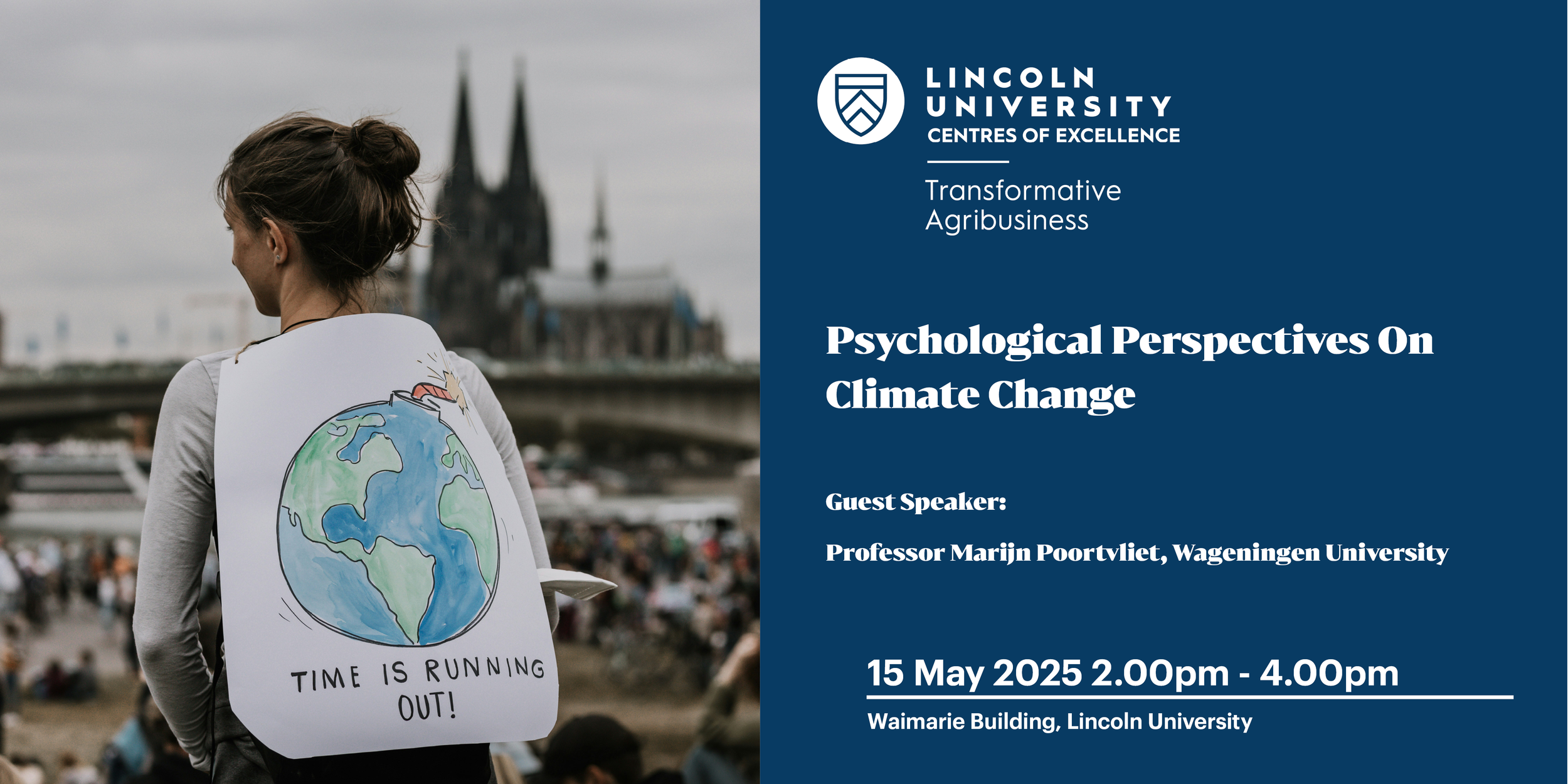Join us for the final part in a special three-part master class series with Prof. Marijn Poortvliet from Wageningen University. In this session, he will explore the psychological dimensions of climate change. This session will introduce attendees to key psychological theories, research methods, and analytical approaches used to understand how cognitive biases, emotions, and social dynamics shape climate-related attitudes and behaviours. By engaging with these concepts, participants will gain a solid foundation for further exploration and potential collaboration in climate psychology and policy development. Be sure to check out the other sessions in this series for further insights into environmental psychology and behaviour.
Timings
2.00pm: CoE Introduction
2.05pm: Masterclass session with Prof. Marijn Poortvliet
3.20pm: Summary
3.30pm: Speaking finishes, guests network
4.00pm: Event finishes
Thursday 15 May
2.00pm - 4.00pm
Patiki, Waimarie Building, Lincoln University
About Our Speaker
Prof. Marijn Poortvliet
Marijn Poortvliet (PhD University of Groningen) is Associate professor environmental risk communication & sustainability transitions, and works at the Section Philosophy, Innovation, Communication & Education at Wageningen University (the Netherlands). Marijn works from a behavioral perspective (the microlevel) and aims to bring in other relevant disciplines (the meso- and macrolevel) to get a full understanding of how decision making emerges. Therefore, he is keen to use multi- and interdisciplinary approaches. Most of Marijn’s work deals with transitions in agriculture, the adoption of sustainable practices, and environmental decision-making. Marijn likes to apply an array of different methods (on the quantitative—qualitative spectrum) and theoretical paradigms. For a full list of his publications see Google Scholar.


